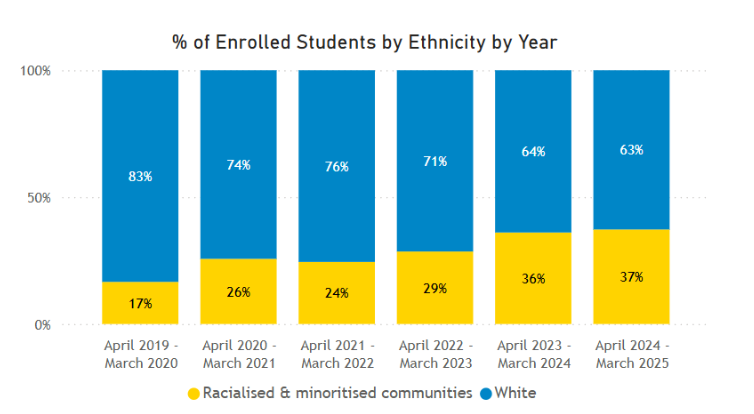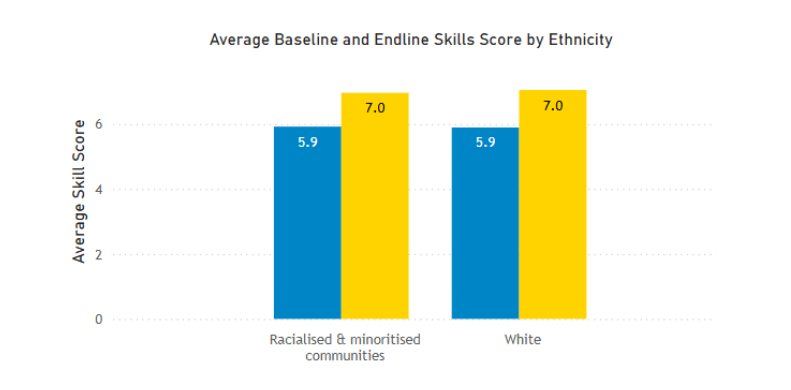SSE Anti-Racism Update – Spring 2025
2 Apr 2025
Staying the Course on Anti-Racism
Over the past year, we have regularly shared our progress on anti-racism, including our March 2024 update and our Annual Report. At a time when there is global instability around Equity, Diversity and Inclusion and corporate organisations are scaling back their work, it is even more vital that we remain committed to anti-racism. This is because:
- It is the right thing to do – Tackling racial injustice is a moral and ethical responsibility. It speaks to the heart of SSE’s mission.
- Systemic barriers remain as high as ever for small businesses from racially marginalised backgrounds – A 2024 study found that ethnically diverse SME leaders are twice as likely to be turned down for business funding1.
- It strengthens organisations – A Mckinsey study found that companies with the most ethnically diverse executive teams were 33 percent more likely to outperform their peers on profitability.
Deepening Our Approach
To make meaningful progress, we are shifting from a focus on inputs (e.g. who we fund and support) to also measuring outcomes—ensuring our programmes truly drive equity. This aligns with our wider strategy and has led us to improve how we collect, analyse, and act on data.
This means:
- Looking at the full project cycle – from who we employ, to who we support and the outcomes that are achieved
- Refining our data collection – to better understand participant experiences and outcomes.
- Strengthening interpretation – to ensure insights drive real change.
Early Findings & Next Steps
Monitoring ‘who we support’ will always be a fundamental part of how we ensure we are equitable. Our latest data suggest that we are making progress on this, with a higher ethnic diversity of participants than ever before (37%).

As we look to further understand equity from an outcomes point of view, we will start to regularly monitor specific outcomes to see if the results we are seeing vary by different demographic characteristics.
The initial signs are positive and we have found that the average change in skills score (over the course of our programme) is very similar, irrespective of ethnicity.

This does not in itself guarantee that all outcomes are equitable but it is a positive sign and we will continue to monitor this and extend the analysis to include more outcomes in future analysis.
Refining our approach
As part of our work, we have updated our key Anti-Racist indicators, which will guide our work going forward. Read below about our progress against these indicators.
Our goal is not just to track these numbers but to act on them—ensuring that SSE’s programmes lead to meaningful, lasting change.
We look forward to sharing more as we continue this journey.
